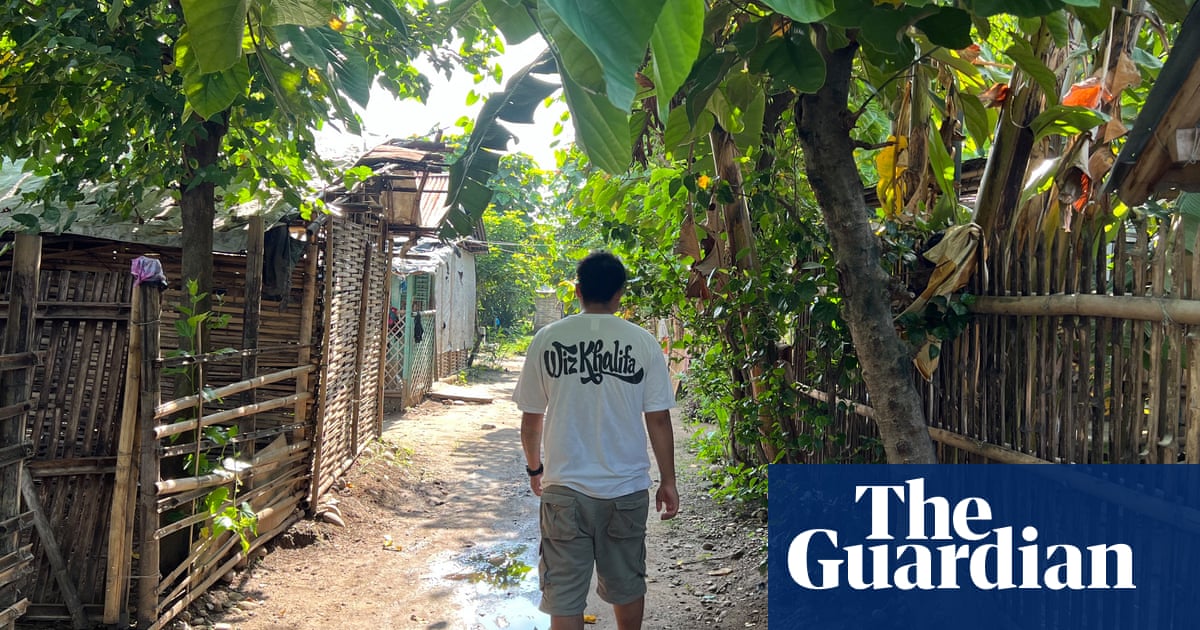Ashish Subedi never imagined he would be deported once, let alone twice.
Subedi, 36, had grown up in the Beldangi refugee camp in easternNepalwhere his family, along with over 100,000 other ethnic Lhotshampas, ended up after being expelled from Bhutan in the early 1990s.
His family eventually resettled in the US under a UN third-country program, and Subedi built a life there. But a domestic dispute with his wife in Pennsylvania led to his arrest, brief detention, and eventually deportation byUS immigrationofficials.
“I thought I’d be released soon,” he recalls. “The Ice officers even said so. I never thought I’d be deported, let alone twice.”
Subedi was put on a flight to Bhutan via the Indian capital of Delhi. But Bhutan, the country that had once stripped his family of citizenship, refused to take him back. Bhutanese officials immediately pushed him toward the Indian border.
Stuck at the border, Subedi paid a middleman to be smuggled into Nepal by paying middlemen and traveled to the Beldangi refugee camp, where his father still lived.
But he was arrested by Nepalese authorities shortly after arriving on 28 March, and charged with illegal entry. “The country that once gave us shelter detained me,” he says, still stunned. “Being handcuffed again felt like a second exile.” His father, Narayan Kumar Subedi, protested on the spot, forcing police to remove the cuffs.
The treatment was a bitter sequel to what Subedi endured in the US. “In Franklin county jail, inmates beat me up. But worse was being stateless again,” Subedi said.
Now, Nepal has initiated formal procedures to deport Subedi and others like him, sparking outrage among refugee rights groups. According to Govinda Rijal, director general of Nepal’s Department of Immigration, Nepalese law requires that anyone entering without a visa be fined and removed. “After presenting a passport or travel document they will be deported to Bhutan,” he said.
But this requirement has been widely condemned as unrealistic. “If Bhutan were willing to accept them, they wouldn’t be in Nepal now,” says Subedi’s father. “How can Nepal deport them back to the country that once expelled them?”
Another deportee, Ashok Gurung, tells a similarly grim story. In 2011, he had also resettled in the US as part of the third-country program. But two years later, a fight between Bhutanese and Burmese refugees in Georgia led him to be charged with assault. Gurung maintains he was not directly involved, but that a witness named him in a statement. He served four and a half years in prison.
After his release, Gurung says, he worked legally for years in Pennsylvania before being abruptly detained by Ice officers on 9 March. He, too, was deported to Bhutan, where authorities refused to accept him. Like Subedi, he was pushed into India and then crossed back into Nepal. But the refugee camp that once sheltered him now refuses to register him.
“There are still thousands of refugees in the camp, but now they say we are not one of them,” Gurung says.
Narayan says so far at least 25 Bhutanese deportees from the US have returned to Nepal under similar circumstances. And yet, Nepal is preparing to deport them again.
“This is an alarming reversal,” says Gopal Krishna Siwakoti, former chair of the Asia Pacific Refugee Rights Network. “These people were made stateless once by Bhutan. Now they’re being rejected again by Nepal. What’s left for them?”
Nepal’s decision to fine and expel them, he says, is legally and morally flawed. “They’re being punished for being stateless. Worse, Nepal is demanding travel documents from Bhutan, the very country that created this crisis. It’s not only impractical, it’s inhumane.”
Some deportees, like 24-year-old Sandesh Giri, are in even more precarious situations. Giri was deported from the US on charges of reckless driving. His mother and family remain in Pennsylvania. Alone in Nepal, he spent 10 days in a hotel before being evicted for not being able to pay.
“I had no Nepali ID, so I couldn’t work or stay anywhere,” he says. “I was stranded.” Eventually, his mother told him about other deportees being accepted into the Beldangi camp. “It was the only place I could go.”
New deportees continue to arrive at the camp, but the system has no mechanism to re-absorb them. In a visit to the camp last Friday, representatives from the UN refugee agency UNHCR, including its Nepal chief, met with camp residents and deportees to assess the situation.
Advocates like Siwakoti are now preparing to challenge Nepal’s deportation orders in the supreme court. “It’s time the international community pays attention,” he adds.
Subedi, meanwhile, longs only for a reunion with his daughter, now three years old. He hasn’t seen her since being taken into custody in the US. “I tattooed her name, Akshata, on my arm in jail,” he recalls, sitting in the bamboo hut of his father. “Every time I think of her, it tears me apart.”
